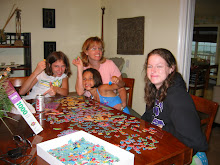Have you ever lifted hard 10 days in a row? Or upped your mileage by 10 miles in one week? Then you've probably felt the beast of overtraining. Overtraining is when somebody feels intense fatigue and other symptoms caused by pushing their body to the brink. But... how does that happen?
It is said that overtraining effects the automatic nervous system, which is responsible for heart rate and blood pressure. There are two parts, the parasympathetic and the sympathetic nervous system.
What the sympathetic nervous system does in response to overtraining.
-Increases resting heart rate
-Increases blood pressure
-Increases caloric needs
-Causes lack of apatite
the sympathetic nervous system seems to be preparing the body for a time with little food and lots of stress...
What the parasympathetic nervous system does in response to overtraining
-Early fatiguing
-Rapid heart rate after exercise
the parasympathetic nervous system is preparing our body to be lazy whenever it can, which is good for survival, but not for soccer
Hormones are also tweaked out in times of bodily stress
-Cortisol increases (and slows recovery)
-Testosterone decreases (slowing recovery even farther)
In fact, this flip-flop of cortisol and testosterone make it so that the body eats its own muscle for energy, which would be vital in a life-death situation.
Muscle cells are among the most effected by overtraining however
-Muscle tears increase (muscle tears are the leading cause of soreness)
-Lactic Acid builds up (the other cause of soreness)
-The muscles have less oxygen delivered to them
-Gylcogen and Creatine stores become depleted (the sources of energy in exercise)
This is caused by the body essentially giving up on the muscles, and focusing on the internal organs and brain.
The body is under so much stress during overtraining that it even decreases the body's antibodies, greatly supressing the immune system. Thats why so many athletes get colds all the time. So overtraining is actually a preprogramed bodily response, that is good for surviving, but not so good for trying to get that state championship.
Gartenideen Fur Kleine Garten
5 years ago

No comments:
Post a Comment